By Christopher Okpoko
Nigeria aspires to lift all of its people out of poverty by 2030 in line with the pivotal goal of the 2030 Agenda for Sustainable Development. Butt highlights of the 2022 Multidimensional Poverty Index (MPI) survey conducted by the National Bureau of Statistics in collaboration with the National Social Safety-Nets Coordinating Office (NASSCO), the United Nations Development Programme (UNDP), the United Nations Children’s Fund (UNICEF), and the Oxford Poverty and Human Development Initiative (OPHI) reveal that:
- 63% of persons living within Nigeria (133 million people) are multidimensionally poor.
- The National MPI is 0.257, indicating that poor people in Nigeria experience just over one-quarter of all possible deprivations.
- 65% of the poor (86 million people) live in the North, while 35% (nearly 47 million) live in the South.
- Poverty levels across States vary significantly, with the incidence of multidimensional poverty ranging from a low of 27% in Ondo to a high of 91% in Sokoto.
- Over half of the population of Nigeria are multidimensionally poor and cook with dung, wood or charcoal, rather than cleaner energy. High deprivations are also apparent nationally in sanitation, time to healthcare, food insecurity, and housing.
- In general, the incidence of monetary poverty is lower than the incidence of multidimensional poverty across most states. In Nigeria, 40.1% of people are poor according to the 2018/19 national monetary poverty line, and 63% are multidimensionally poor according to the National MPI 2022.
- Multidimensional poverty is higher in rural areas, where 72% of people are poor, compared to 42% of people in urban areas.
- The National MPI is reported with a linked Child MPI, which provides additional information on Multidimensional Child Poverty in Nigeria. According to the report:
- Two-thirds (67.5%) of children (0–17) are multidimensionally poor according to the National MPI, and half (51%) of all poor people are children.
- The highest deprivations are in the indicator of child engagements – where over half of poor children lack the intellectual stimulation that is pivotal to early childhood development.
Also, it worthwhile to note that high growth and low inflation are essential to economic development, which is not the current situation in Nigeria now. The annual GDP growth rate in 2022 stood at 3.10 per cent; headline inflation rate was 22.22 percent in April 2023 and Unemployment rate projected to trend around 43 percent in 2024 and 44 percent in 2025
The above statistics in conjunction with the promise of the Presidential-elect, Bola Tinubu, during his campaign last year to conquer poverty in Nigeria, therefore, makes a powerful case for directly attacking poverty immediately. The urgency of addressing poverty and inequality in Nigeria now is especially high because of evidence from other regions that globalization can make inequality within countries worse, because of the higher skill premium associated with technological advancement and also because of the unequal distribution of benefits from global trade. Furthermore, according to the International Monetary Fund (IMF), attacking poverty makes sense from both a social justice and economic perspective. The human costs of poverty are weighty, and there is increasing evidence that the economic costs are great too.
Auspiciously, there is much that policy makers can do to reduce inequality and poverty, while also supporting growth and stability. The areas in which the major contributions can be made from experience are as follows:
1. Eradicating poverty through education
According to UNESCO, if all students in low-income countries had just basic reading and writing skills (nothing else), an estimated 171 million people could escape extreme poverty. If all adults completed secondary education, we could cut the global poverty rate by more than half. Education develops skills and abilities, corrects some of the imbalances that come out of marginalization, and decreases both risk and vulnerability. Some of the key areas of focus for making sure that education is truly for all involve breaking down the barriers to education: creating access to school in remote areas, supporting teachers in their work to deliver quality education, and making sure that education is available to children living in fragile environments.
2. Halting poverty by ending hunger (and thirst)
Concern Worldwide U.S., Inc. reports that simply eating three meals a day and getting a healthy amount of calories and nutrients can go a long way to breaking the cycle of poverty. When a person doesn’t have enough to eat, they lack the strength and energy needed to work. And contaminated water can lead to debilitating illnesses. Adequate healthcare options for all goes hand-in-hand with this solution, and represents a larger need for governments to offer the basic social protections and services to keep their citizens healthy.
3. Poverty alleviation through peace
Ending all conflicts, though very ambitious, but it means that budgets allocated to cover the cost of conflict can be used to deliver public services. It also reduces risks faced by the most vulnerable communities, and ensures that goals towards equality and inclusion can be maintained. Imagine what it will look like if clashes between famers and headers and that of different agitators in Nigeria are resolved
4. Cash solves poverty
It may seem like the simplest of answers, but cash and microfinance are two of the best solutions to poverty. While the traditional image of humanitarian aid may be crates of supplies like food, water, and tents, distributing cash has become more common. It’s cheaper and faster to get into a country (and can even be distributed by phone now). It also gives recipients the autonomy to make their own purchasing decisions, and supports local and national economies. The only problem here is the lack of accurate data on vulnerable people in Nigeria.
Sometimes, a small startup grant (even as small as $100) is all it takes to help a family living below the poverty line to launch a new business while keeping on top of their bills and keeping their children fed. The net effect is that they are able to lift themselves out of poverty in a sustainable manner.
5. Eliminating poverty through equity
According to World Bank, one of the main causes of poverty is inequality. The systemic barriers that lead to groups of people going without representation in their communities leaves them further behind in terms of resources and opportunity. In order for a community, or even a country, to alleviate poverty, all groups and identities must be involved in creating solutions. One of the biggest inequalities we need to address is gender inequality. According to the UN’s High Level Panel for Women’s Economic Empowerment, women’s unpaid labour add up to $10 trillion per year (13% of the global GDP) According to the Food and Agriculture Organization, women own less than 20% of agricultural land in parts of Africa and Asia, yet make up 60% of the agricultural workforce. One other important thing to note: By equality, we mean that every person must have an equality of results versus equality of resources. This may mean additional resources for the furthest behind, in order to ensure that they have all they need to succeed.
6. Commit to climate change solution and climate justice
Resilience against climate change is especially important and deserves its own mention. According to the World Bank, climate change could force an additional 100 million people into extreme poverty over the next decade without any urgent action taken. One of the solutions to poverty that goes beyond any humanitarian mandate is a governmental commitment to climate justice, particularly on the parts of high-income countries whose carbon emissions are higher than those of the low-income countries hit hardest by climate change.
In conclusion, economic growth is fundamental for the society as a whole and the prospects of both poor and average citizens; moreover, if the most active citizens of a country do not have hope that their standard of living will rise, they will devote their energies to moving out instead of moving up, to the detriment of their country.



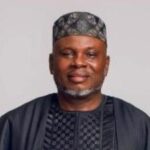

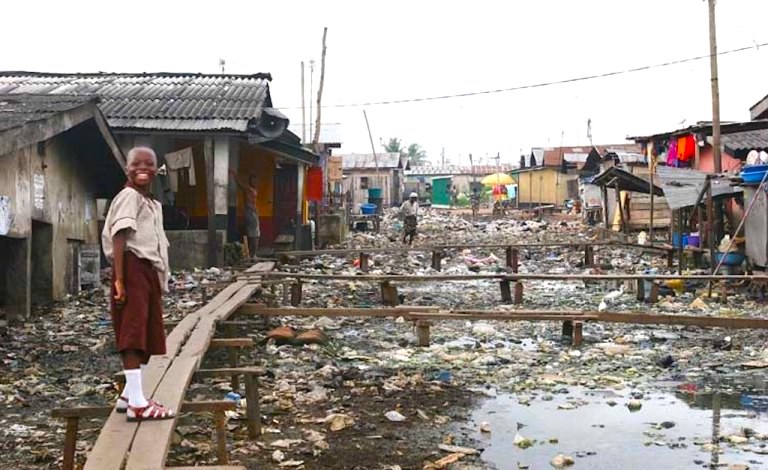
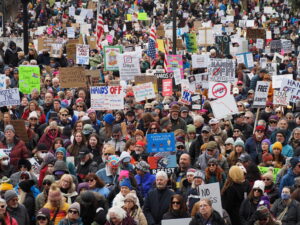

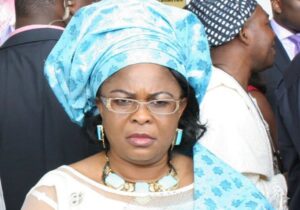
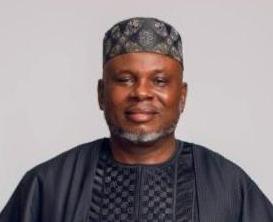
More Stories
Tinubu sacks NNPCL CEO Mele Kyari, replaces him with ex-Shell MD, Ojulari
Customs commences implementation of zero tax on imported pharmaceutical inputs for two years
NNPC’s termination of Naira for crude deal with Dangote heightens FX demand, as Naira weakens